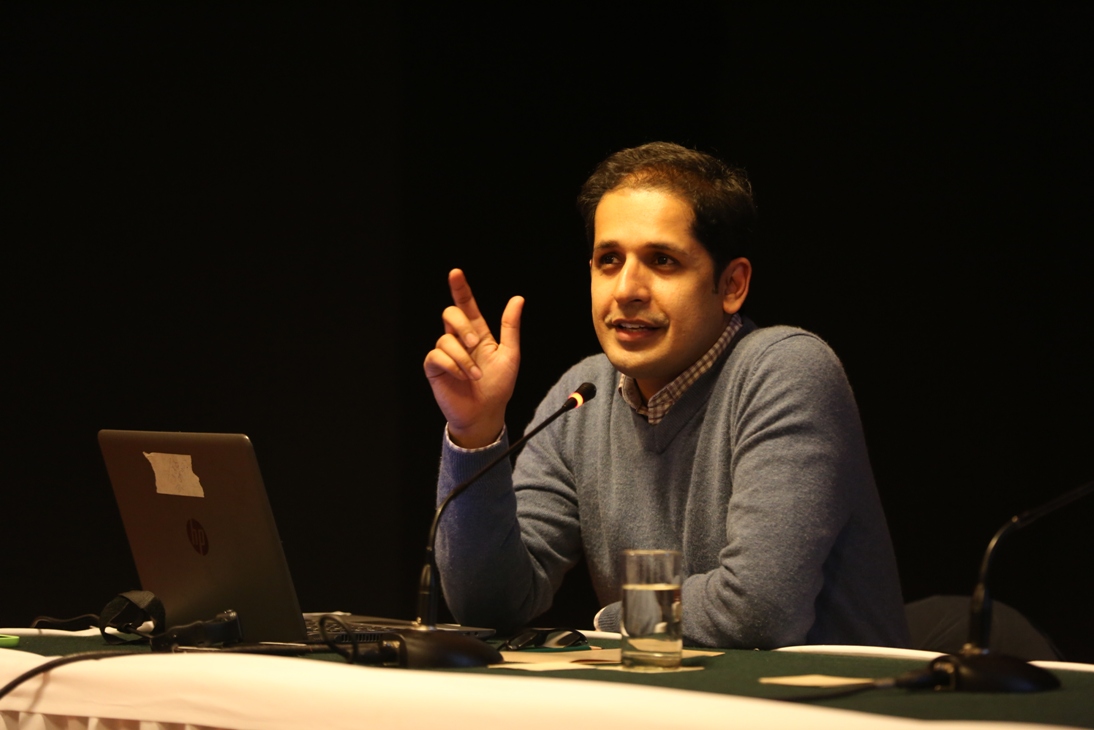Submitted by Tanya Khanna
Recapitulation: Land-urban interstices of Delhi- Some reflections
India Architecture News - Mar 19, 2019 - 02:42 11858 views

In a history spanning over a millennium, the urban fabric of the national capital presents numerous cases of unprecedented juxtaposition and abject disconnect. Held on 18th February 2019, at the India Habitat Centre, the 43rd talk in the ‘Architecture and Society’ series focused on the urban land interstices of Delhi.
The Key Speaker for the event was Amit Khanna, an architect, and urbanist; drawing from his design practice as well as extensive research on sustainable urban development, Ar. Khanna evaluated the numerous approaches to urban planning at our disposal. He posited “It’s the end of the Urban Planner”, referring to the inefficacy of Master Planning as a tool to effectively address the current living situations in our cities. Elaborating on the concept of ‘concrete jungles’, he talked about the occurrence of urbanization – often untouched by governmental interventions, and often despite it.
He inferred that this phenomenon made the citizen the primary stakeholder in urban development, and argued that people be involved from the grassroots level to ensure equitable living conditions. ‘Cities crop up when we are not looking, with or without a government’, he said, ‘Humans as the sole owners of the cities have been left out of the design process. We must practice participatory design, not to find the answers, but to find the correct question and to address it’.
He concluded the talk by urging the audience to rethink the social and spatial dynamics of the granular urban interstices of Delhi, to design with a vision of transforming ordinary spaces into expanses that have a sense of ease and safety.
Chair: M.N. Ashish Ganju, collab. Greha
Communications Partner: Epistle Communications
About Architecture and Society Talk Series
'Architecture and Society' talk series is a monthly forum organised by Greha in collaboration with Epistle Communications - at the India Habitat Centre. Each month, the forum invites architects, urban practitioners, academicians and research scholars from the entire country to talk about their work. The intent of the forum is to gather students, practitioners and the public of Delhi in one space where discussions on the future of built environment in India can take place.
About Greha
Since its inception in 1974, Greha has concentrated on the growth of knowledge in the field of environmental development, habitat design and architecture. The thrust of Greha's efforts have been towards addressing issues of the majority of the population; the focus was the marginalised people in rural and urban settlements; the vehicle was developing knowledge and methodologies concerning settlement systems more suited to our history and cultural context.
The founder members, during the early stages of their professional careers, would meet periodically to engage with majority concerns, away from the routine of the practice.
These concerns led them towards working with the poor and marginalised people in Indian society and eventually to the establishment of a school of habitat studies.
Greha registered in 1986 as a non-government, not for profit society, with the aim of generating a body of ideas, involving diverse professional talent and promoting expert contribution in development projects undertaken by public agencies.
About Epistle Communications
Epistle is a communication consultancy providing bespoke, strategic consulting services for architecture, design, planning and allied disciplines.
Follow Greha on Facebook, LinkedIn
Follow Epistle Communications on Facebook, LinkedIn, Twitter, Blog.
Top image courtesy of Greha
